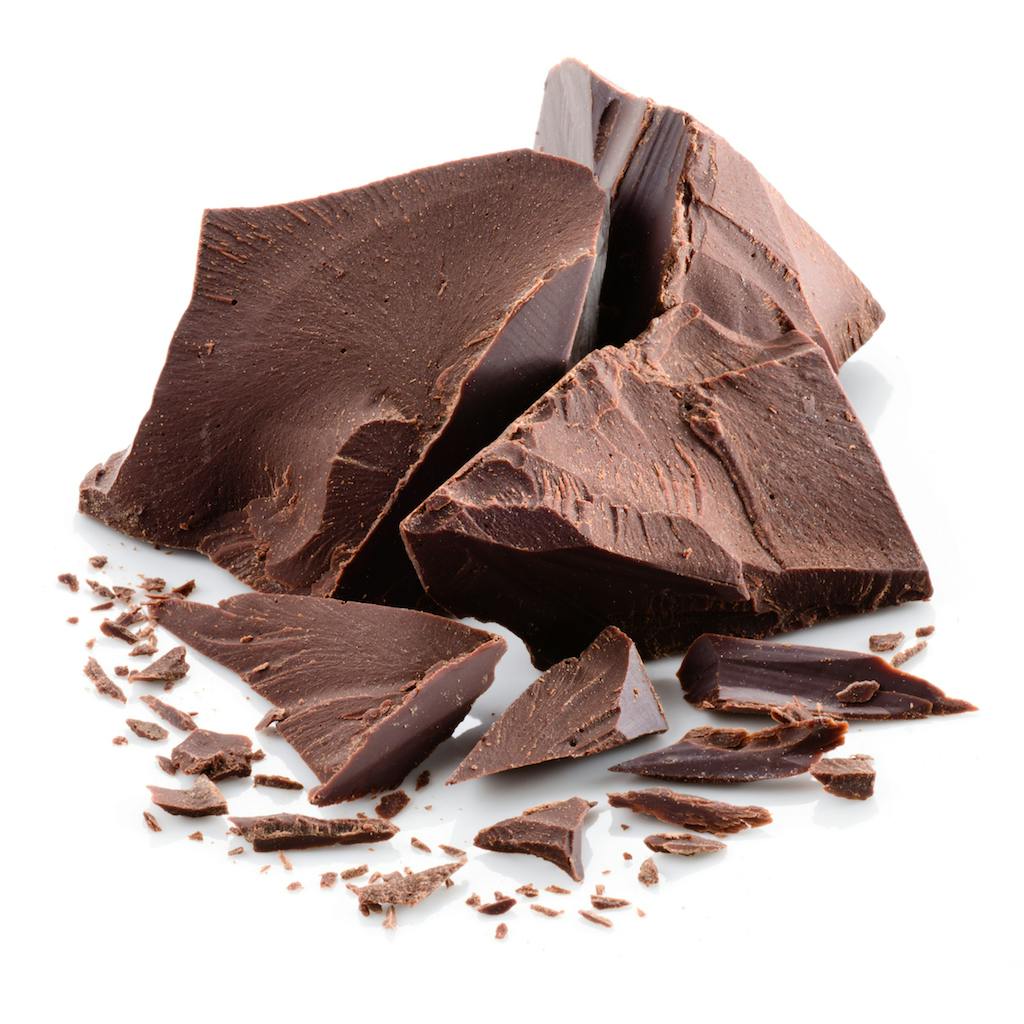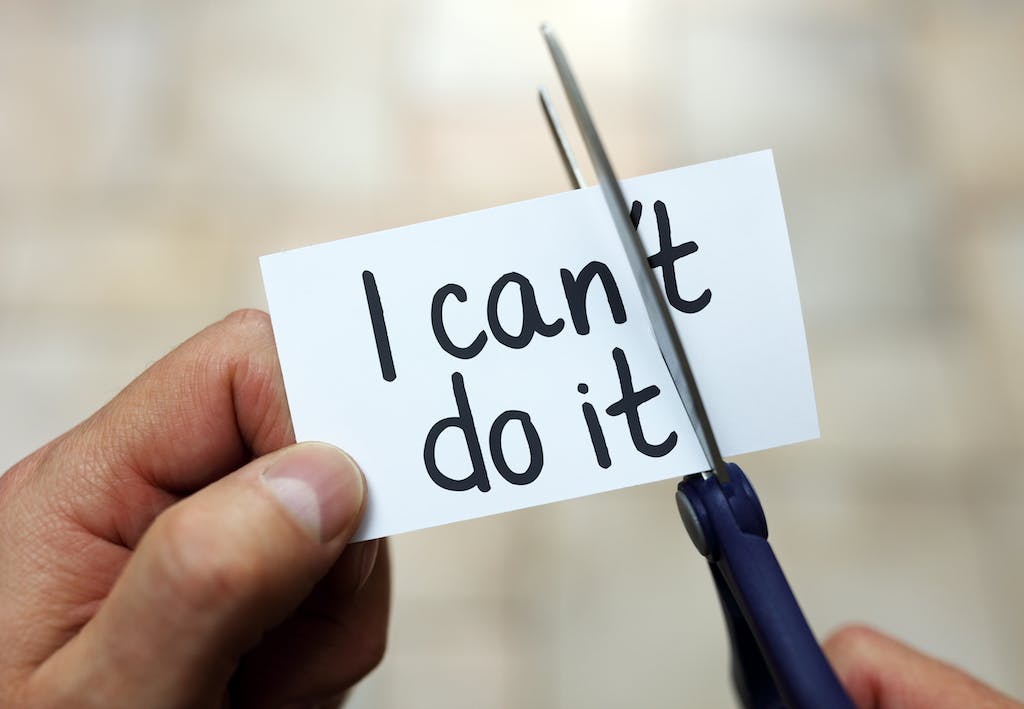Managing Chocolate Cravings

The retail chocolate industry in the USA is worth $13 billion per year – yes, we eat a lot of chocolate!
In moderation, chocolate can be enjoyed as part of a healthy diet. If you give into chocolate cravings too often, however, it can be detrimental to your health – and your waistline.

Credit:bowie15 iStock
Read on and find out why chocolate is so addictive and what you can do to overcome chocolate cravings.
Are you a chocoholic?
According to the Virginia-based Chocolate Manufacturers Association and National Confectioners Association, Americans eat approximately 12 pounds each of chocolate a year.
"Chocolate is the number one craved food, so this is sort of an in-house model of addiction," says cognitive neuroscientist Dana Small at Northwestern University School of Medicine in Chicago.

Credit:Ljupco iStock
But the label “chocoholic” doesn't necessarily mean that you're addicted to the stuff. Scientists have found that, unlike alcohol or other addictive substances, chocolate does not actually produce the chemical changes in the brain or changes in the body, like tolerance and withdrawal, that are associated with addiction.
Yet to the self-confessed chocoholic, the addiction is very real. Some chocoholics may find themselves pacing the floor, wondering where their next chocolate “fix” is going to come from, or obsessing about chocolate, day in, day out.
It is possible to cure your cravings without suffering the terrible withdrawals that you may fear – you can enjoy a small piece of chocolate every now and then without needing to overdo it.
What's so good about chocolate anyway?
Psychotherapist and counselor, Christine Sutherland, says that chocolate's appeal is two-fold: "First, it's childhood association. Chocolate is given as a special treat and we're taught that chocolate is special. There are also the chemical effects of chocolate. We now know that when people eat chocolate, they produce endorphins or the 'happy' hormone. If someone is feel a bit flat or a bit down, they can have a piece of chocolate and experience a short, temporary boost. So it's a feel-good food."

Credit:monkeybusinessimages iStock
Other professionals agree. Nutritionist Glenn Cardwell goes as far as saying: "The power of chocolate is so delightful and stimulating that it often resembles the feeling of falling in love."
Some US scientists have claimed that chocolate has an effect on the brain similar to that of marijuana. They've found that eating chocolate produces a small amount of Anandaminde, a fat in the brain that is also produced by the consumption of marijuana. This may also explain some of the “feel-good” associations people experience when eating chocolate.
Constant cravings

Credit:DenizA iStock
So what causes chocolate cravings?
Barbara Rolls of the Pennsylvania State University says that: "People learn their responses to food over a lifetime, developing complex ties between food and social or cultural roots. This makes eating habits one of the most difficult habits to change."
Researchers in the UK also found that chocolate cravings were learned behaviors. While they began with the premise that cravings in general were biological in origin, these cravings could be conditioned to certain behaviors. Of the participants in the study, those who ate chocolate when hungry had increased cravings while those who ate chocolate when they were already full decreased their cravings. Their conclusion was that chocolate craving might be avoided by eating chocolate only when full, rather than to satisfy hunger.
But it is the source of the hunger that may be the problem. Many people experience hunger on an emotional level, craving certain foods when they are down or depressed. Christine Sutherland sees this as a form of “self-medication”, where people instantly reach for chocolate as a coping mechanism to deal with stress.

Credit:gustavofrazao iStock
Christine believes that cravings are based on a biochemical level too, which explains why women experience more cravings at certain times of the month than others. "We know that the estrogen dominant syndrome, where progesterone levels don't come up high enough and there is a deficiency in zinc and copper, will lead to more cravings, for chocolate in particular," Christine says. "Chocolate does two things: provides a little bit of zinc but also improves mood slightly."
But women aren't the only ones to suffer from chocolate cravings – men get them too. Christine says that this is a common problem for men but that they are less likely to admit it. "Men tend to visit their doctor less and they deny that they're overweight or obese," Christine says. "So there are lots of men who are addicted to chocolate but they're in denial about it."
Beating cravings

Credit:BrianAJackson iStock
Beating cravings can be tough. But there are some simple steps you can take to make the challenge easier:
Eat a sensible, balanced diet of three meals a day. This will help prevent hunger and lack of energy throughout the day.
Try not to have any chocolate in the house and try to avoid the chocolate and sweets aisle when shopping. Do your best to ignore the marketing of chocolates that's trying to sabotage your diet.
Have a little chocolate but not a lot. This way you are working with your cravings, not against them and you reduce the risk of bingeing. You also avoid the risk of eating around the problem, where you snack on all sorts of other foods in an attempt to keep yourself away from chocolate. You may find that a small amount of dark chocolate, particularly the brands that contain 70 per cent cocoa, is more satisfying than milk chocolate.
Try using the 'Four Ds' – a system used in smoking cessation programs to help smokers relieve the need for a cigarette, even when they're desperate:

Credit:kazoka30 iStock
- Delay for a few minutes and the urge will pass.
- Drink water, sip it slowly.
- Deep breathe. Take three slow breaths.
- Do something else to take your mind off eating.
Find other, positive ways to deal with depression and stress. For instance, go for a walk, a bike ride or a swim. Talk with a friend or counselor. Do something special for yourself, like have a facial or a long bubble bath. Meditation, yoga or tai chi are excellent ways to deal with stress.

Credit:sasapanchenko iStock
"I can resist anything but temptation!" Chocolate is an aggressively marketed product. You'll find ads for chocolate bars tempting you everywhere – from TV, magazines and newspapers, to the aisles of supermarkets where special campaigns aimed directly at the chocolate lover are in place. If you're trying to overcome your chocoholic tendencies, try to keep this in mind. Candy companies are more than happy for you to have an out-of-control chocolate habit!

Credit:Wavebreakmedia iStock